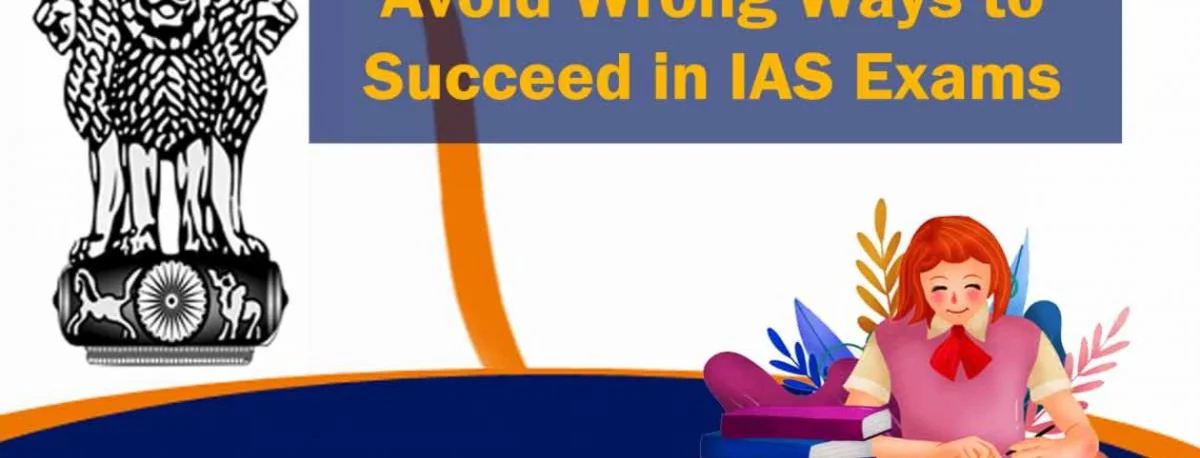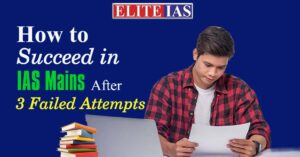Though all who are literate can and do read the newspapers, it’s advisable to undertake the activity, with a different perspective, if you are preparing for the IAS Exam. That is to say, your reading of the newspaper should help you gain and develop further the qualities that UPSC would like to appreciate in the IAS aspirants.
The Pre-Requisites
As you are preparing for the IAS Exam, it’s advisable to read the newspaper(s) after making a provision for the following pre-requisites:
- Keep a copy of the UPSC syllabus ready on your study table: It’s advisable not only to read the UPSC syllabus thoroughly, but keep a copy of the same ready on your table. Also, get familiar with the UPSC keywords by heart.
- Make an analytical reading of the previous years’ question papers: It will help you discover for yourself, as how can reading the newspapers be helpful to you in order to prepare for the IAS Exam. You would be able to figure out for yourself the manner that UPSC employs to base questions on what goes around, and the knowledge of that comes to you by reading the newspaper daily.
- Focus on the issue: Anybody reading the newspaper will usually focus on the news. However, it’s advisable for an IAS aspirant to focus on the issue. It will help you understand the society better at various platforms. And it’s the society you are going to administer as the future IAS officer.
Articles To Read:
IAS Interview: Tips to Crack the Personality Test
25 Best IAS Interview Question and Answers
Important Tips to Help You Read the Newspapers for a Higher Rank in the IAS Exam
- Current Affairs: In the recent past, UPSC has gradually begun to turn the focus from the static to the dynamic, thus holding the Current Affairs in great prominence. Thus, needless to say, reading the newspapers becomes highly important, both for the Prelims and the Mains.
- Manage your time effectively: Time management is highly important and applies to reading the newspapers as well. Make a daily fixed routine and keep a provision of time, neither too less, nor too much, for reading the newspapers. Manage your time suitably and effectively. Do not spend 3-4 hours every day reading the newspapers only. It would not leave you with sufficient time for making the rest of the preparation.
- Make A Selective Reading:
- What to read?
Make a selective reading rather than reading the entire newspaper from the first to the last page. Reading selectively will not only help you save the time, but also comprehend and retain the relevant details in a far better manner.
It’s advisable to read the news/articles/issues/columns etc., based on the following with an unwavering focus:
- Environment & Biodiversity,
- International Relations,
- International Organisations,
- Government Policies and Schemes,
- Personalities and Awards,
- Economic Policies,
- Science and Technology etc.
- What not to read?
It’s only sensible to skip the following and not waste your time unnecessarily:
- political statements/political news,
- news specific to a state/town/city etc. However, if the news carry a specific significance at a relevant platform or belongs to your home town/city/state specified in the DAF for there might be quite a few questions based on the same in the Interview
- the share market,
- entertainment,
- sports news (unless it can be co-related to your hobby as specified by you in the DAF).
- Which newspaper to read? You may opt for The Hindu or The Indian Express. Make it a daily practice to read the Editorials and the Op-Ed i.e., the page Opposite to the Editorial.
Besides, it would be only more sensible to read the newspaper that you opt for in the manner as given below in order to optimize the benefits of the newspaper reading:
Make a thorough reading of the headlines on the first pages
- The pages that comprise regional and state news can be skipped, unless there is something important, as already said earlier
- The Page(s) dealing with the National News is of utmost importance
- The Editorial and the OP-Ed Pages should also be taken seriously
- Also read the Page for the World News thoroughly well
- Also read all the growth parameters, trends, fiscal and monetary policies and the socio-economic issue thoroughly well.
Take down the notes:
Take down brief notes of the relevant information that you get across while reading the newspaper that you opt for. Remember, the notes are meant to help you revise on a regular basis. You have to retain in your memory whatever you have reading from the newspapers (apart from other sources, of course). Thus, you do not have to write a thesis for Ph.D., but prepare notes that should be brief, crisp and precise. It will help you make revisions as and when required.
Maintain a balanced perspective:
It’s only wiserand in the best of your own interests to read the news witha balanced perspective. Remember, even if you are reading the Editorial, the writer might be having his own opinion concerning a particular issue. But, then, it’s you who is going to face the IAS Exam. And if you tend to get biased, even while reading the newspaper, it might affect your psyche, making you prejudiced to some extent or another. And it might get obvious while you answer the questions in the Mains or the Interview. So, cultivate a balanced perspective, staying away from any kind of prejudice, while you read a newspaper.
So far, so good!
However, it should always be kept in mind that time is a highly important resource and that is always getting depleted. Thus, as already said earlier, do not waste time in reading what simply might not be required for the preparation of the IAS Exam.
Thus, an IAS aspirant who has read and understood the syllabus well would be able to figure out better, earlier, and with greater ease, what he should read. It’s being insisted upon again, for there is no time to waste in reading what is actually not required by the UPSC syllabus. So, it’s best not to get carried away by the topics/news/articles etc., which do not fall within the range of what the UPSC Syllabus reads. It will not serve any purpose in the long run when you face the IAS Exam.





